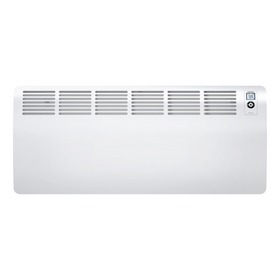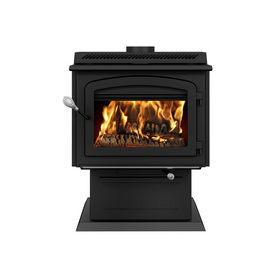
Heavy Timber Pergolas: A Comprehensive Guide
Last Updated: Mar 29, 2025Any home's value and visual appeal can be increased by a simple wooden structure called a pergola.
Pergolas have adorned yards and gardens for more than 3,000 years, dating back to ancient Egypt, where a high court official built a garden pergola. Today, pergolas can be custom-built or purchased in kits in hundreds of unique shapes and styles to match any home style or intended use, from entryways to entertaining spaces. Today, we’re focusing on one of our favorites: a heavy timber pergola.
Table of Contents
- What is Heavy Timber Pergola?
- What Type of Wood Is Used for a Heavy Timber Pergola?
- How Much Does it Cost to Build a Pergola?
- Gazebo vs. Pergola
- Do Pergolas Block the Sun?
- Creative Pergola Ideas
- What Will You Do With Your Pergola?
What is Heavy Timber Pergola?
A heavy timber pergola is simply an outdoor wooden structure composed of posts and crossbeams with the top left open and airy. They make for a beautiful addition to any yard or garden or a functional space for entertaining.

The heavy timber makes it possible to grow plants up the posts and even over the top, using the crossbeams to climb and create a gorgeous, natural “roof.” You might choose to grow berries, grapes, ivy, or even fragrant wisteria up the posts and over the top for a truly luxurious outdoor atmosphere. If you’d prefer to leave the top open, you could still use the posts as stakes to grow plants like tomatoes and peppers.
What Type of Wood Is Used for a Heavy Timber Pergola?
Choosing a rot-resistant hardwood makes for a durable and robust pergola that will last 40 years or longer. Most pergolas are built with cedar, hemlock, tamarack, or Douglas fir and can be left natural to age to a beautiful silver color. If you avoid painting and staining your pergola, it can even be composted at the end of its life.
Installers use large, heavy, rough-cut lumber rather than finished lumber for a longer-lasting pergola that can withstand weather and the weight of climbing plants.
How Much Does it Cost to Build a Pergola?
Pergolas range in price from just $1,000 for a small and straightforward entryway to upwards of $6,000 for larger, more intricate designs. Ready-made pergola kits are easy to self-install and available at set prices, so you can choose the pergola that fits your available budget. With just a few friends, you could start the installation in the morning and enjoy your new pergola by dinnertime.
Or, you can hire a professional to design, build, and install a unique pergola just for you. When planning with your chosen professional, talk to them about options in wood, labor, and other factors that may impact the finished cost. If you’re planning to add walls or a canopy to your pergola, be sure you budget for that extra expense as well.
Gazebo vs. Pergola
Many people use the words “gazebo” and “pergola” interchangeably, not realizing a difference. The most significant difference is the shape of the structure and whether or not it has a covering.

A pergola is usually square or rectangular and held up by posts, leaving the top and sides open. This design makes a pergola an excellent choice for a home entrance, walkways, and over patios and decks. Pergolas are available in various styles, including arched tops, high-pitched open roofs, stately columns, or even a unique shape like those commonly used in Japanese-style gardens. Built custom or from a kit, pergolas can be installed long and narrow, big and square, or anywhere in between.
On the other hand, Gazebos are usually round or octagonal, have a solid roof, and many have low walls around the edges. Gazebos are often very intricate in design with scalloped edges and delicately cut features. A gazebo is usually smaller than a pergola and may be raised with steps leading up, making them popular for wedding vows and artsy entertaining stages. And, because gazebos include a solid roof (and a lot more timber), they may last longer than the typical pergola.
Do Pergolas Block the Sun?
Unlike gazebos, pergolas can be built to your preference for sun coverage. It can block the sun completely, leave the roof open to allow sunlight to pour in, or be made with retractable tops and walls.

Pergolas have grown in popularity in mild climates, like California, where homeowners can enjoy their outdoor spaces year-round. But they can be enjoyed in colder climates, like British Columbia, by using canopies, covers, and wall options. Canopies and covers, like opaque louvers, can be permanently installed for 24/7 rain coverage. You can even opt for new motorized retractable options that can be extended or pulled back with a single switch when the mood suits. There are millions of pergola covers to choose from, ranging in functionality, color, pattern, and finish to fit your unique style. You might even switch out your pergola canopy with the seasons, opting for a darker color in the winter and a lighter, airier option in the summer.
Retractable walls can be added to screen in or completely close in your pergola space when humid conditions draw the mosquitoes out. They even make it possible to enjoy your outdoor space during wind and rain.
Would you rather leave your pergola open and natural? If you choose to grow vines up and over your pergola, you’ll create a summer-like dappled sunlight effect for moderate, natural shade.
Creative Pergola Ideas
Pergolas can be purchased ready to install or designed to fit your unique lifestyle. Below you’ll find a few ideas to get your creative juices flowing. Be sure to make it a more sustainable pergola by using reclaimed or FSC certified wood.
Garden-Themed Entertaining Space
If you enjoy summer entertaining, you might grow vines and flowers up and over your pergola and surround it with borders of fragrant flowers and herbs. Adorn the beams and posts with hanging baskets of cascading flowers and string lighting for a dreamy setting for wedding receptions, birthday parties, and more. Inside your pergola, you might add outdoor couches, lounge chairs, a dance floor, or even a hot tub for added luxury.

Outdoor Sports Bar
If you enjoy watching sporting events, you might design your pergola like a pub. It could include a wet bar complete with beer taps, shelving for bottles and glasses, and even a wine fridge. Stock your backyard sports bar with a blender, cocktail shaker, funky margarita glasses, and decorate it with unique light fixtures, signs, and posters. You might add outdoor TVs or projectors to watch your favorite team in the great outdoors or have a family video game night. A pool or foosball table and a dartboard will complete the at-home sports bar.

Al Fresco Kitchen & Dining
If you live in a mild climate, you might benefit from a pergola designed for outdoor cooking and dining. Install a permanent grill, stove, oven, refrigerator, shelving, cabinets, sink, and even a dishwasher for a fully functional outside kitchen. You can stock your cabinets with outdoor dishware so you can genuinely live all summer outdoors. Decorate your alfresco kitchen with a fun island theme or a retro style, add a big kitchen table, and you may never want to go back inside again!
Grand Entrance
Instantly improve your house’s curb appeal with a pergola extending from your front door for a knockout grand entryway. Add a retractable canopy to protect your guests (and packages) from the elements and pull it back in sunny weather to let the sunlight stream in your front windows.
Covered Walkways
Because pergolas can be designed long and narrow, you might design yours as a covering over pathways leading from your house to a detached garage, guesthouse, or garden. Complete with a stone footpath, borders of fragrant flowers and herbs, and maybe even a water feature, a covered walkway makes for an excellent place to exercise your dogs or enjoy a meditative walk.
Laura Bourland
Laura grew up in the California suburbs, far removed from environmentalism, but nature always has a way. She uprooted her life in 2015, moving to the countryside of Washington to live a more sustainable and simple life on 12 acres. She and her fiancee are learning on the job as they attempt everything from gardening and natural pest control to eco-friendly building and home improvement.











